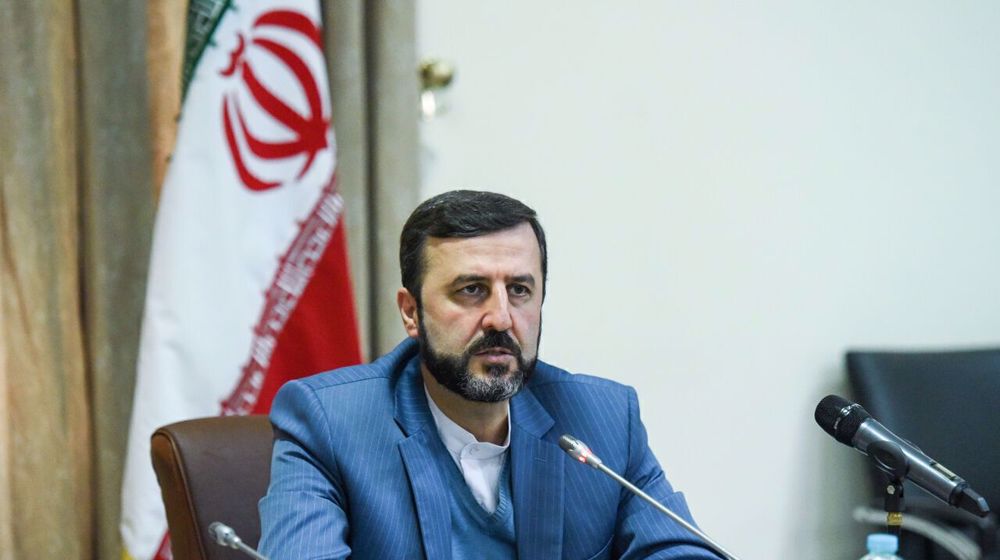
Iran’s top human rights official says the Islamic Republic has called upon Iraqi authorities to extradite 38 main members of separatist and terrorist groups holed up in the Arab country’s semi-autonomous Kurdistan region.
Kazem Gharibabadi, secretary of Iran’s High Council for Human Rights, made the remarks on the sidelines of the fourth trial session of the members of the Mujahedin-e-Khalq Organization (MKO) terrorist group, which was held in absentia in the capital Tehran on Tuesday.
Iran has urged the central government in Iraq and authorities in Kurdistan to meet their commitments toward Iran and take necessary measures to secure the border.
The Islamic Revolution Guards Corps (IRGC) has launched several rounds of airstrikes against the positions of the terrorists who are holed up in Iraqi Kurdistan.
On November 21, 2022, positions of anti-Iran separatist and terrorist groups in northern Iraq came under combined attacks using missiles and kamikaze drones. The strikes targeted the positions of the notorious Democratic Party of Iranian Kurdistan (PDKI) and the Komala Party in northern Iraqi Kurdistan, Iran’s Arabic-language Al-Alam television news network reported at the time.
According to the network, one attack saw four missiles being fired against a PDKI position in the town of Koy Sanjaq in Erbil Province. A separate attack featured kamikaze drones smashing into another site belonging to the group near the Baharka village.
Simultaneously, kamikaze drones struck positions associated with Komala across two locations near the city of Sulaymaniyah.
Elsewhere in his remarks on Tuesday, Gharibabadi noted that Iran has not limited its legal actions simply to MKO terrorists, but has also taken measures against Pakistan-based so-called Ansar-ul-Furqan and Jaish-ul-Adl terrorist groups.
Members of the latter terror outfit are wanted for a vicious terrorist assault on Rask County’s police headquarters in the southeastern Iranian province of Sistan and Baluchestan on December 15 last year.
The assault claimed the lives of 11 police forces, including officers and conscripts, and left several others wounded.
Gharibabadi further said that Iran has the necessary means at its disposal to implement its court rulings against the terrorists, saying, “The countries now sheltering the terrorists will have no reason to support them or would at least opt to expel the individuals once we hand down the verdicts.”
He described terrorism as one of the most horrific crimes being committed in the world with the support of certain so-called advocates of human rights.
Gharibabadi underscored that Iran has been the biggest victim of terrorist acts, and some 23 thousand Iranian nationals have fallen victim to acts of terror.





Leave a Reply